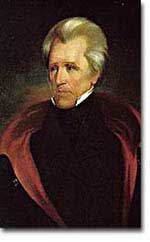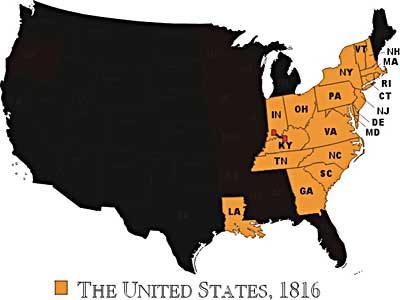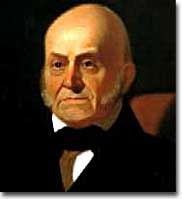
23. Politics and the New Nation

Andrew Jackson, the namesake of "Jacksonian Democracy," opened the voting rolls to non-landholding white men.
The social forces that reshaped the United States in its first half century were profound. Western expansion, growing racial conflict, unprecedented economic changes linked to the early Industrial Revolution, and the development of a stronger American Protestantism in the Second Great Awakening all overlapped with one another in ways that were both complementary and contradictory.
Furthermore, these changes all had a direct impact on American political culture that attempted to make sense of how these varied impulses had transformed the country.
The changing character of American politics can be divided into two time periods separated by the War of 1812. In the early republic that preceded the war, "republicanism" had been the guiding political value. Although an unquestioned assault on the aristocratic ideal of the colonial era, republicanism also included a deep fear of the threat to public order posed by the decline of traditional values of hierarchy and inequality.

The United States still had a long way to go in 1816.
While it seems surprising today, at the start of the early republic many people, and almost all public leaders, associated democracy with anarchy. In the early national period following the War of 1812, democracy began to be championed as an unqualified key to improving the country. The formerly widespread fear of democracy was now held only by small and increasingly isolated groups in the 1820s.

John Quincy Adams had plenty of help at home in getting his political career going. He was the son of former President and First Lady John and Abigail Adams.
Although a belief in democratic principles remains at the center of American life today, the growth of democracy in the early national period was not obvious, easy, or without negative consequences. The economic boom of the early Industrial Revolution distributed wealth in shockingly unequal ways that threatened the independence of working-class Americans. Similarly, western expansion drove increased attacks on Native American communities as well as the massive expansion of slavery.
Finally, even within white households, the promise of Jacksonian Democracy could only be fully attained by husbands and sons. The changes American society underwent in the early national period, including many of its troubling problems, created a framework of modern American life that we can still recognize today.






